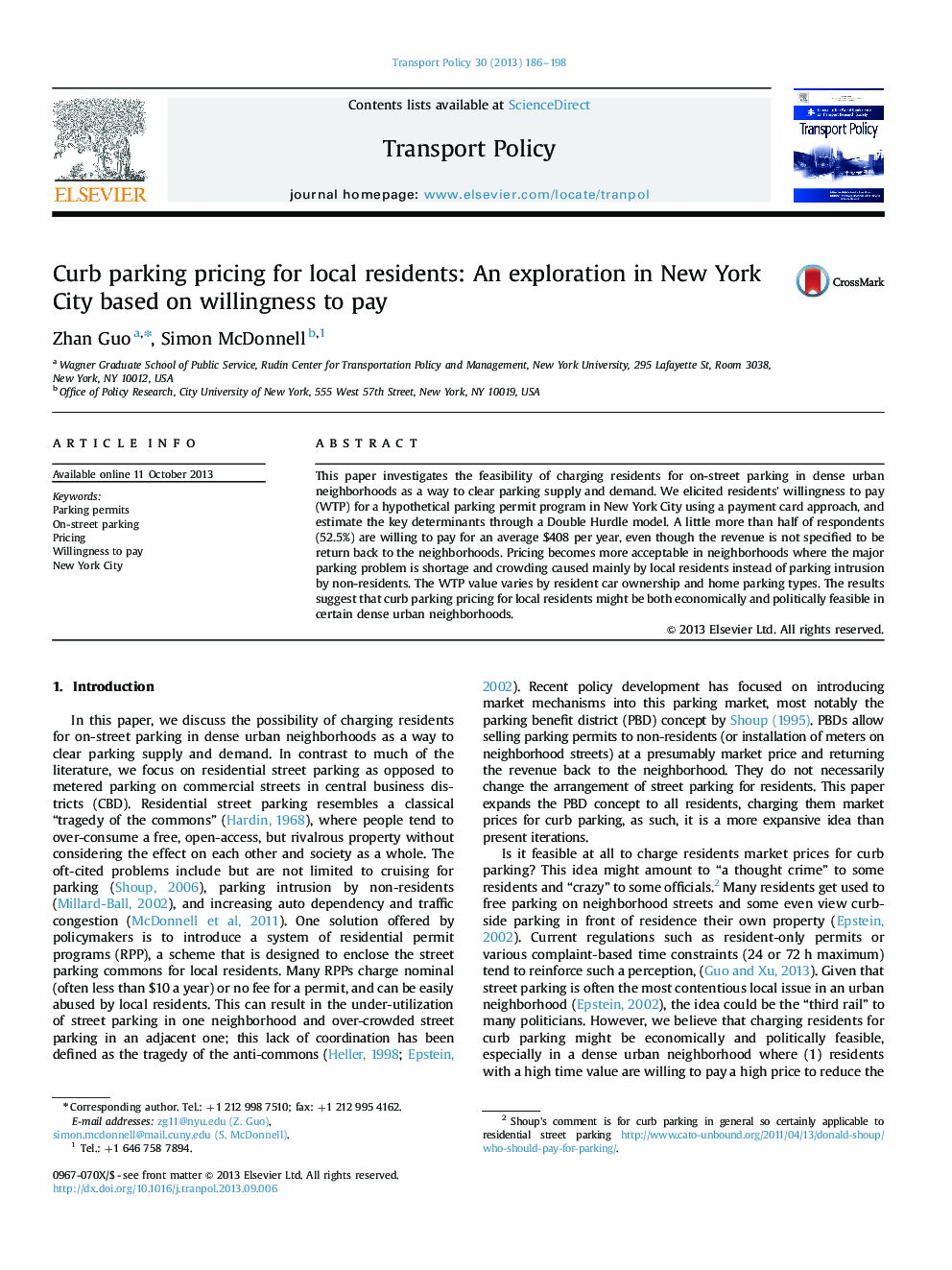| Article ID | Journal | Published Year | Pages | File Type |
|---|---|---|---|---|
| 7498146 | Transport Policy | 2013 | 13 Pages |
Abstract
This paper investigates the feasibility of charging residents for on-street parking in dense urban neighborhoods as a way to clear parking supply and demand. We elicited residents' willingness to pay (WTP) for a hypothetical parking permit program in New York City using a payment card approach, and estimate the key determinants through a Double Hurdle model. A little more than half of respondents (52.5%) are willing to pay for an average $408 per year, even though the revenue is not specified to be return back to the neighborhoods. Pricing becomes more acceptable in neighborhoods where the major parking problem is shortage and crowding caused mainly by local residents instead of parking intrusion by non-residents. The WTP value varies by resident car ownership and home parking types. The results suggest that curb parking pricing for local residents might be both economically and politically feasible in certain dense urban neighborhoods.
Related Topics
Social Sciences and Humanities
Social Sciences
Geography, Planning and Development
Authors
Zhan Guo, Simon McDonnell,
